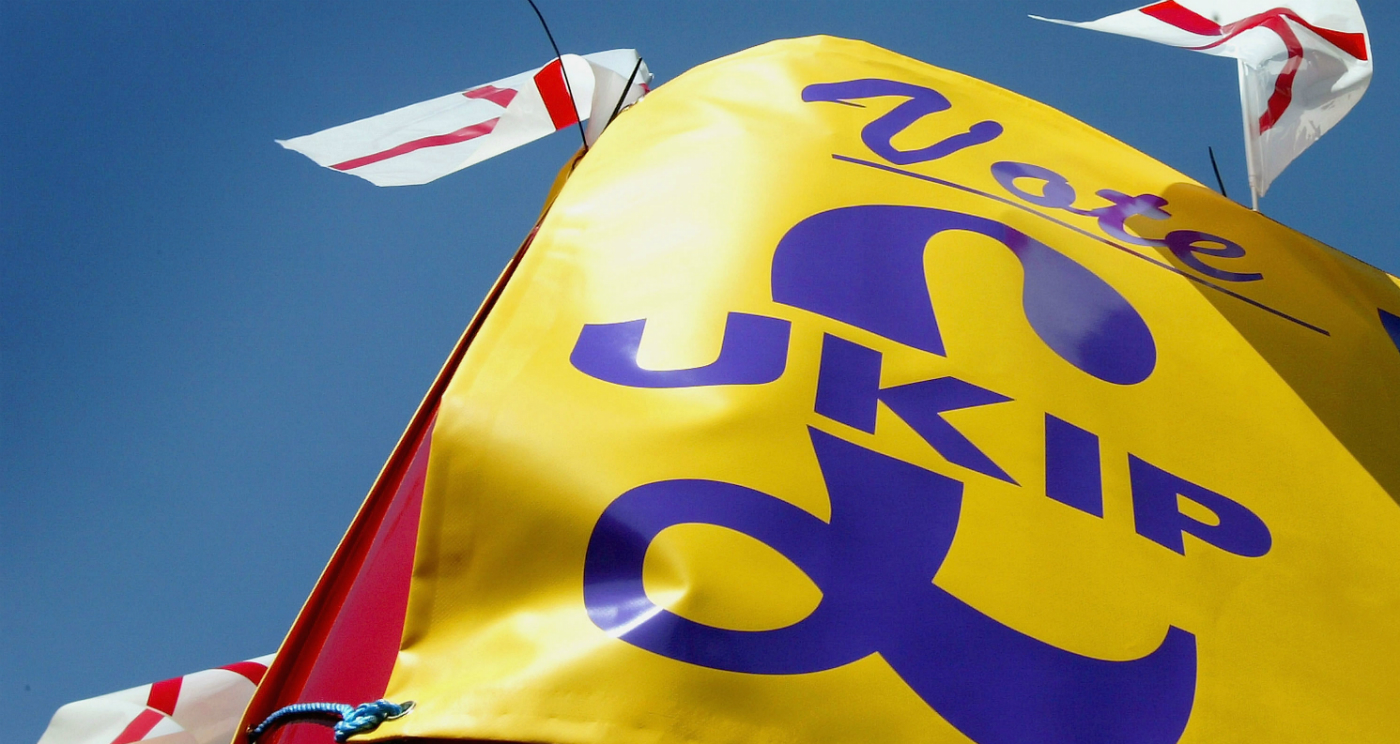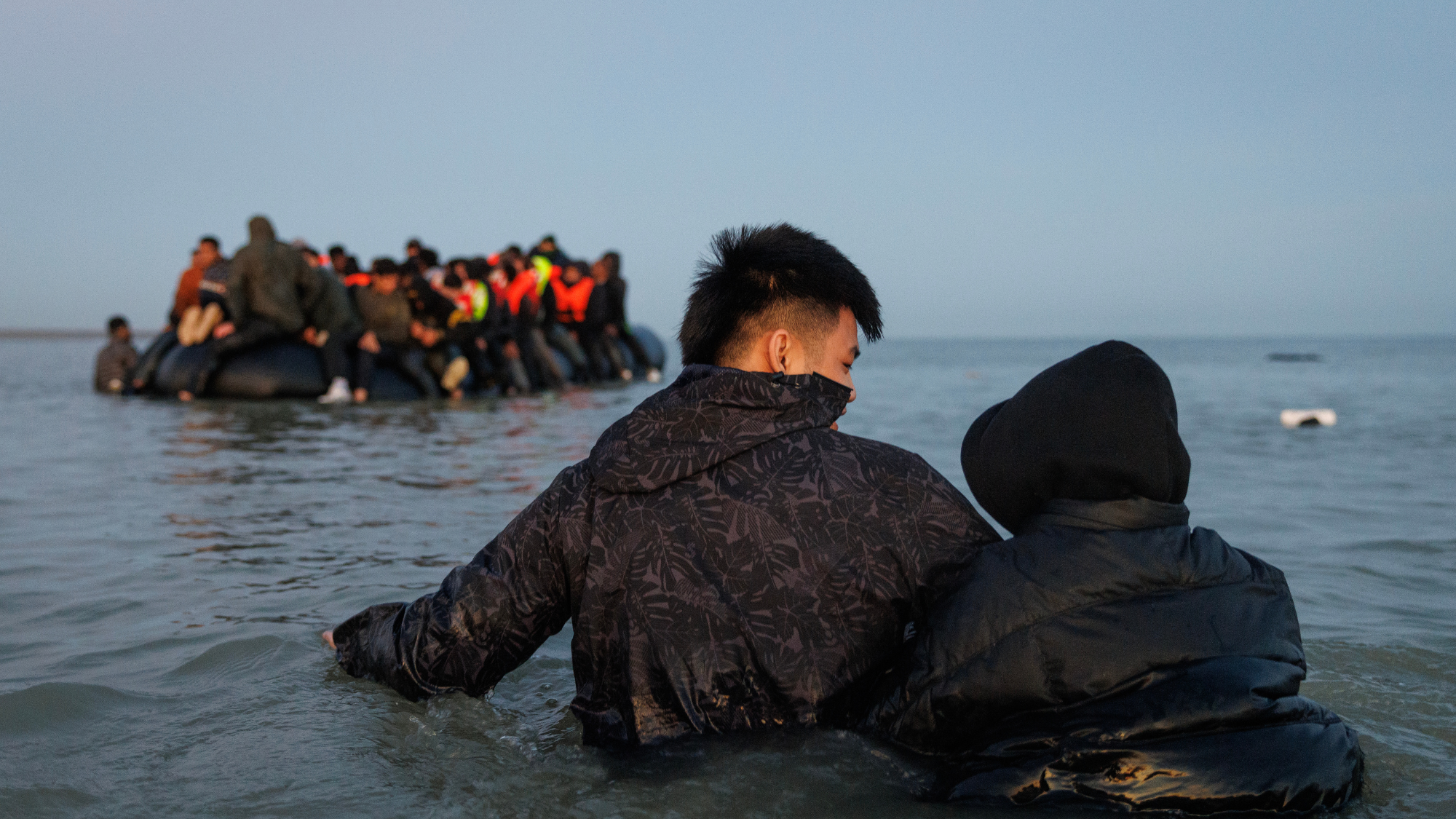The UKIP dozen: a look back at all the party’s leaders
Gerard Batten announces new leadership election this summer which could herald seventh leader in three years

A free daily email with the biggest news stories of the day – and the best features from TheWeek.com
You are now subscribed
Your newsletter sign-up was successful
UKIP leader Gerard Batten has announced the party will hold a leadership election this summer.
Batten was appointed interim leader last year and his term in office is due to expire in June. He is “currently weighing up whether to stand again for a new four-year term”, says The Daily Telegraph.
Batten’s leadership “has led to a raft of resignations from the party, including Nigel Farage, who accused the UKIP leader of being ‘pretty obsessed with the issue of Islam’”, reports the BBC.
The Week
Escape your echo chamber. Get the facts behind the news, plus analysis from multiple perspectives.

Sign up for The Week's Free Newsletters
From our morning news briefing to a weekly Good News Newsletter, get the best of The Week delivered directly to your inbox.
From our morning news briefing to a weekly Good News Newsletter, get the best of The Week delivered directly to your inbox.
If Batten is replaced, the party will have had seven leaders since September 2016 when Farage quit after six years in charge.
In the party’s 26-year history they have had 12 leaders, The Week looks back at the UKIP dozen:
Alan Sked (Sept 1993-May 1997)
Founded in 1993 by the Eurosceptic historian Alan Sked, with the primary objective of withdrawing the UK from the European Union, UKIP first fielded candidates in the 1997 general election, but was overshadowed by James Goldsmith's Referendum Party.
A free daily email with the biggest news stories of the day – and the best features from TheWeek.com
After the election, Sked resigned as leader and left the party because he said it was “doomed to remain on the political fringes” and contained members who “are racist and have been infected by the far-right”.
Craig Mackinlay (Aug 1997-Sept 1997)
Acting leader for a month while the 1997 leadership election was organised, Craig Mackinlay defected in 2005 and is now a Tory MP, perhaps best known for his role in an electoral spending criminal investigation into the Conservatives following the 2015 general election.
Michael Holmes (Sept 1997-Jan 2000)
Holmes was at the helm for UKIP’s first successful election campaign, the 1999 European Parliament elections, where it won 7% of the vote and was rewarded with three MEPs, including one Nigel Farage. A rift with Farage resulted in the party’s National Executive Committee voting Holmes out in 2000.
Jeffrey Titford (Jan 2000-Oct 2002)
Titford was a former undertaker, described by The Guardian in 2001 as “an emollient man, a sort of Willie Whitelaw figure, and an ideal leader for such a fractious party”. He led UKIP into the 2001 general election where candidates stood in 420 seats but attained just 1.5% of the vote. In October 2002 he stood down to allow his successor a proper run-up to the 2004 European elections.
Roger Knapman (Oct 2002-Sept 2006)
Knapman took over the role of leader in 2002, but by 2004, a new pretender to the crown – former Labour MP and chat-show host Robert Kilroy-Silk – “arrived in a flurry of media publicity to shake things up once again”, says the BBC.
However, after bitter clashes with the leadership, Kilroy-Silk, who was elected as an MEP in 2004, first resigned the UKIP whip in Brussels in October 2005 and then completely from the party in January 2005, branding it a “joke”.
Kilroy-Silk wasn’t the only problem for Knapman as there was some amusement in May 2006 when it was revealed that the UKIP leader – who had campaigned against letting Poland join the EU – employed a team of Polish builders to renovate his home. In October 2006 Knapman said he had no intention of standing for re-election.
Nigel Farage (Sept 2006-Nov 2009/Nov 2010-Sept 2016/Oct 2016-Nov 2016)
The ensuing leadership election resulted in Farage winning the post; he pledged to expand UKIP from a single-issue party into one that would fill the “enormous vacuum in British politics” by picking up votes from former Conservatives. Farage – who has so far led the party three times – stood down first in 2009 to dedicate himself to taking on Speaker John Bercow in his Buckingham seat at the 2010 general election.
Coming third with 17% of the vote, Farage then returned as leader in 2010, a post he held for the party’s most successful elections to date: the 2014 European Parliament elections, where UKIP won the largest share of the vote. In the run-up to the 2015 general election Farage announced he would stand down as leader if he did not win the seat of South Thanet. Following his loss he announced his resignation but was reinstated three days later when the party’s National Executive Committee rejected it.
After the UK’s decision to leave the EU in June 2016, Farage resigned for a third time saying: "During the [Brexit] referendum I said I wanted my country back… now I want my life back". But he returned once more as leader in October 2016 for a month after the party was thrown into disarray by the resignation of new leader Diane James after just 21 days. Farage eventually quit the party altogether in December 2018, citing the appointment of Tommy Robinson as an advisor to the party.
Malcolm Pearson (Nov 2009-Nov 2010)
Pearson was elected in 2009 on the back of Farage’s first resignation and led the party into the 2010 general election. He drew some criticism from party members for asking UKIP candidates to not stand against Conservative or Labour Eurosceptics. In the election the party polled 3.1% of the vote, an increase of 0.8% on the 2005 general election, but took no seats. Pearson resigned to allow Farage to become leader again.
Diane James (Sept 2016-Oct 2016)
James became the party’s first female leader after the EU referendum in 2016. But she quit just 21 days into the post, announcing: “It has become clear that I do not have sufficient authority, nor the full support of all my MEP colleagues and party officers to implement changes I believe necessary and upon which I based my campaign.”
Paul Nuttall (Nov 2016-June 2017)
Farage’s long-time deputy took over the leadership of the party in November 2016. Nuttall stood in the 2017 Stoke by-election but his campaign came under heavy criticism when it emerged that a number of claims he had made were untrue. These included: that he was present and “lost close personal friends” at the Hillsborough disaster; that he had a PhD; that he had been on the board of directors at a vocational training charity and had been a footballer for Tranmere Rovers. He stood down as leader following the 2017 general election when the party’s vote share fell by 10%.
Steve Crowther (June 2017-Sept 2017)
Crowther was acting leader following Nuttall’s departure, despite polling the second-fewest votes in his constituency in the 2017 election.
Henry Bolton (Sept 2017-Feb 2018)
Bolton was elected in September 2017 but presided over a series of controversies before eventually being ousted after a row in which his girlfriend, Jo Marney, faced allegations she had sent racist text messages about the Duchess of Sussex.
Gerard Batten (Feb 2018-present)
Batten, one of the party’s founding members, was named acting leader in February 2018. He has been criticised for the direction in which he has taken UKIP, particularly for the courting of alt-right YouTubers and Tommy Robinson.
-
 Labor secretary’s husband barred amid assault probe
Labor secretary’s husband barred amid assault probeSpeed Read Shawn DeRemer, the husband of Labor Secretary Lori Chavez-DeRemer, has been accused of sexual assault
-
 Trump touts pledges at 1st Board of Peace meeting
Trump touts pledges at 1st Board of Peace meetingSpeed Read At the inaugural meeting, the president announced nine countries have agreed to pledge a combined $7 billion for a Gaza relief package
-
 Britain’s ex-Prince Andrew arrested over Epstein ties
Britain’s ex-Prince Andrew arrested over Epstein tiesSpeed Read The younger brother of King Charles III has not yet been charged
-
 How corrupt is the UK?
How corrupt is the UK?The Explainer Decline in standards ‘risks becoming a defining feature of our political culture’ as Britain falls to lowest ever score on global index
-
 The high street: Britain’s next political battleground?
The high street: Britain’s next political battleground?In the Spotlight Mass closure of shops and influx of organised crime are fuelling voter anger, and offer an opening for Reform UK
-
 Nigel Farage’s £9mn windfall: will it smooth his path to power?
Nigel Farage’s £9mn windfall: will it smooth his path to power?In Depth The record donation has come amidst rumours of collaboration with the Conservatives and allegations of racism in Farage's school days
-
 Is a Reform-Tory pact becoming more likely?
Is a Reform-Tory pact becoming more likely?Today’s Big Question Nigel Farage’s party is ahead in the polls but still falls well short of a Commons majority, while Conservatives are still losing MPs to Reform
-
 Nigel Farage: was he a teenage racist?
Nigel Farage: was he a teenage racist?Talking Point Farage’s denials have been ‘slippery’, but should claims from Reform leader’s schooldays be on the news agenda?
-
 Five takeaways from Plaid Cymru’s historic Caerphilly by-election win
Five takeaways from Plaid Cymru’s historic Caerphilly by-election winThe Explainer The ‘big beasts’ were ‘humbled’ but there was disappointment for second-placed Reform too
-
 Taking the low road: why the SNP is still standing strong
Taking the low road: why the SNP is still standing strongTalking Point Party is on track for a fifth consecutive victory in May’s Holyrood election, despite controversies and plummeting support
-
 The end of ‘golden ticket’ asylum rights
The end of ‘golden ticket’ asylum rightsThe Explainer Refugees lose automatic right to bring family over and must ‘earn’ indefinite right to remain